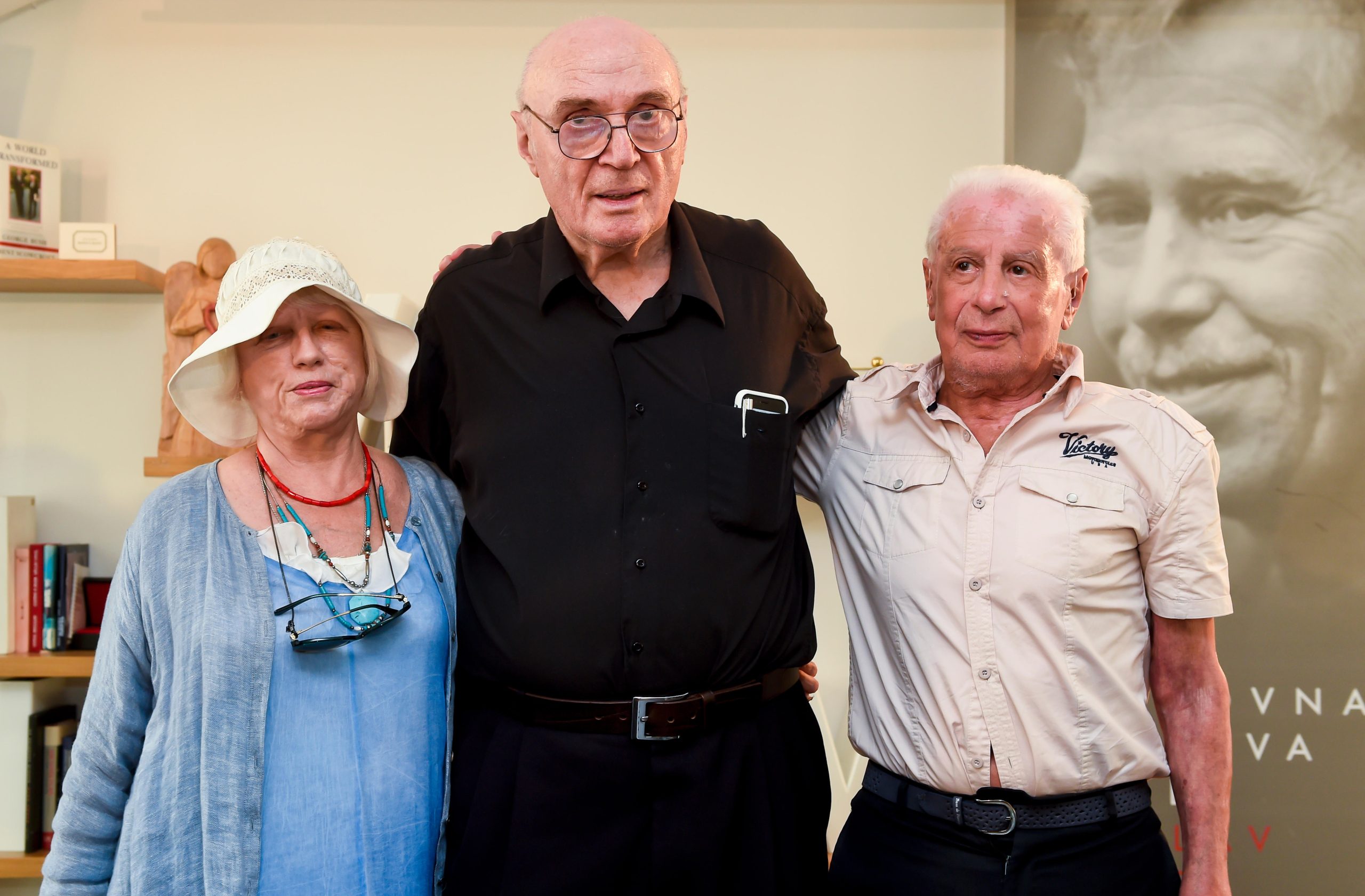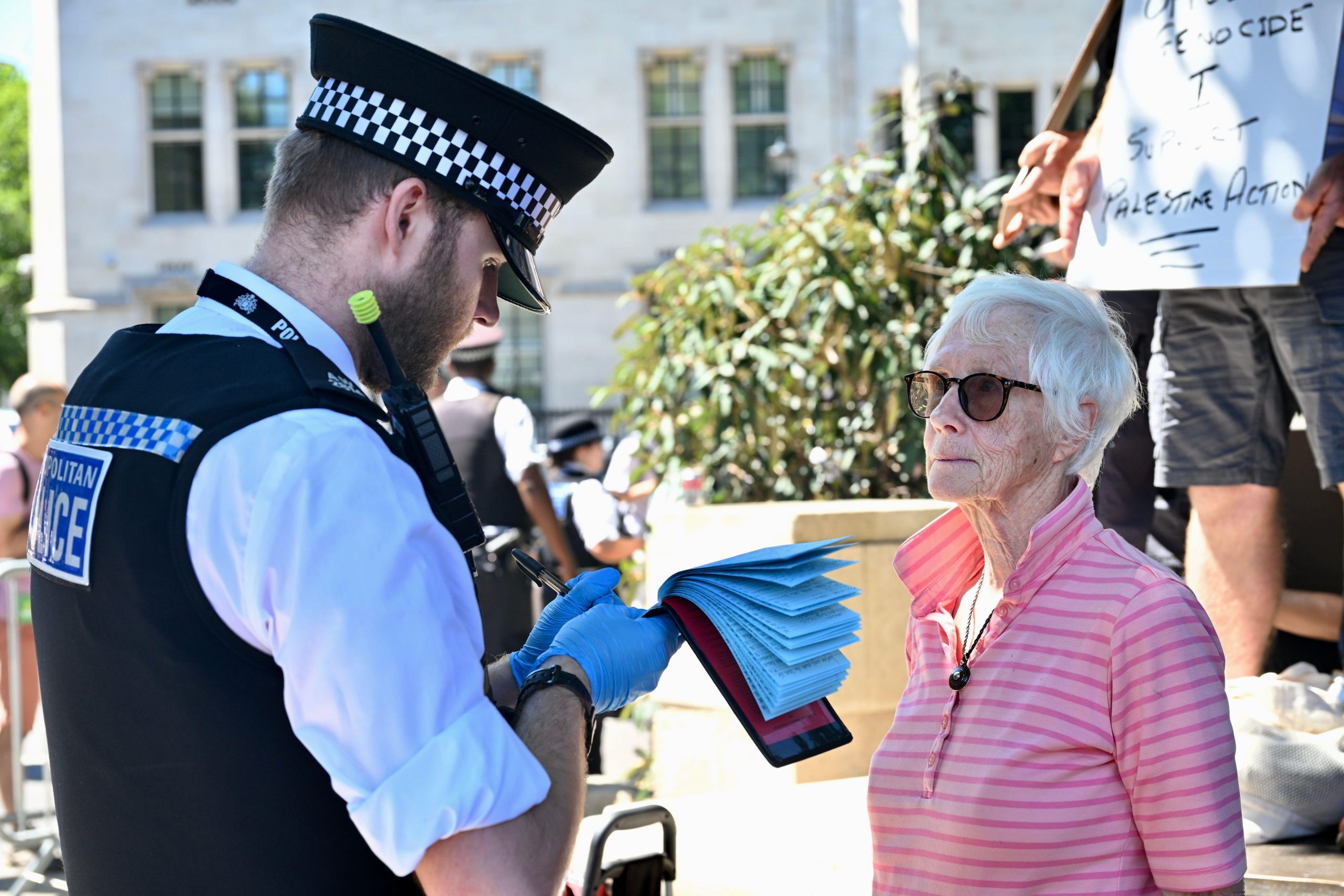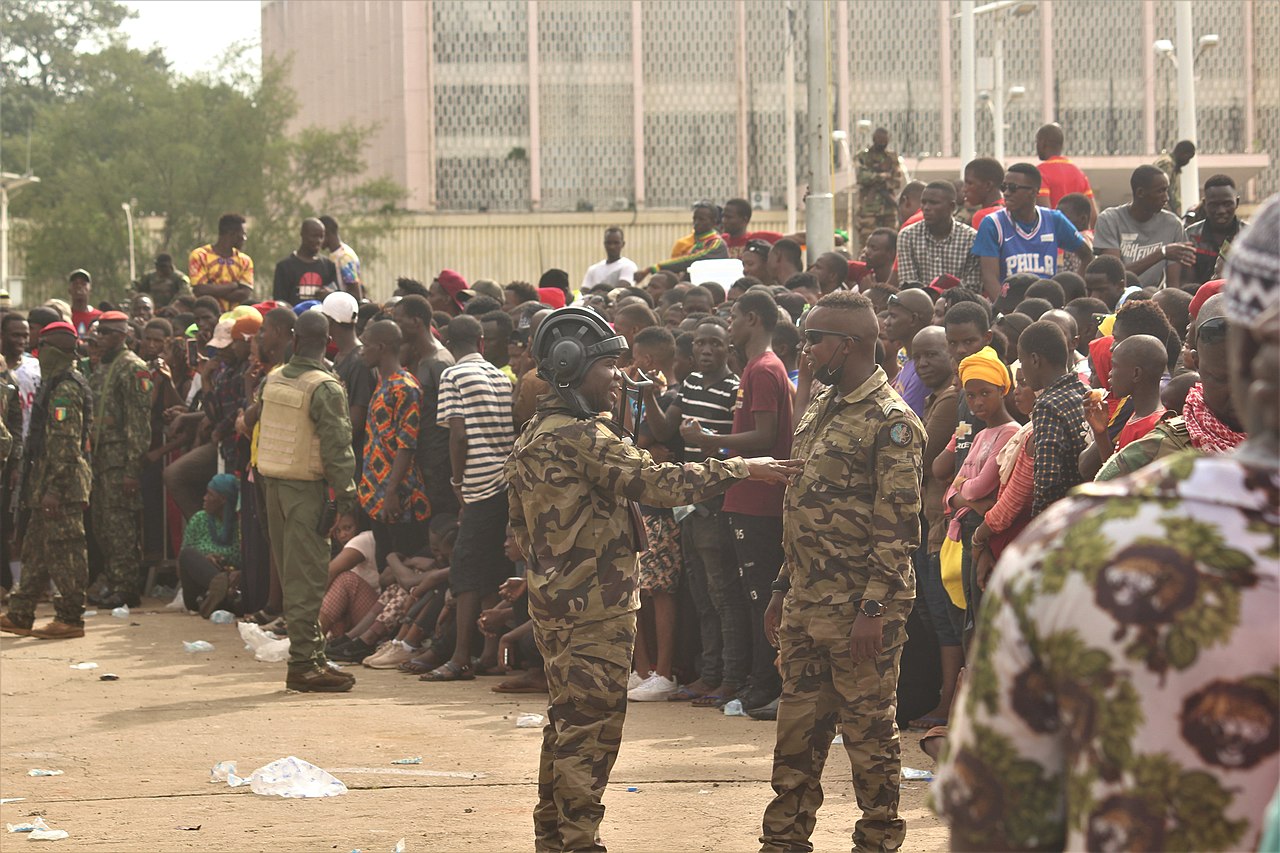Pavel Litvinov, who recently turned 82, is an imposing figure. When I meet him on a rainy August day, he fills the space in his compact living room in the suburban New York City garden apartment he shares with his wife, Julia Santiago. We picked the day, 22 August, for our interview out of convenience, but it happens to resonate. It was on 21 August 1968 that Soviet troops invaded Czechoslovakia, demolishing the “socialism with a human face” of its leader, Alexander Dubček.
Days later, at noon on 25 August, the then 28-year-old physicist Litvinov, with seven comrades – including the group’s organiser, poet Natalya Gorbanevskaya (and her baby in a pram) – met in Moscow’s Red Square to unfurl a banner that turned out to be life-changing. Its message was plain: “Hands off the CSSR [Czechoslovak Socialist Republic].” Within minutes, the KGB arrived to forcibly take them away to camps or psychiatric hospitals. Litvinov, hit hard in the face, was arrested and sent to internal exile in a Siberian mining town for five years with his then wife. His daughter was born there.
“I was in prison for several months and then in exile and had to work in the mines. I couldn’t leave the village; I couldn’t get permission to travel,” Litvinov said. Recalling his motivation for the action, he added: “It felt internally necessary. I had a very strong feeling of what is fair and unfair, and that people have to treat each other gently and with respect.”
The Litvinov family was well known in both dissident and Soviet ruling circles. His grandfather was Maxim Litvinov, once Joseph Stalin’s people’s commissar for foreign affairs until he was deposed in 1939 because, as a Jew, he became an obstacle to warmer ties with Adolf Hitler. “I was 11 when my grandfather died; we were good friends,” he explained. “He was already disappointed in the Russian revolution and the Bolsheviks.” His parents’ home was a gathering place for dissidents. Literature also inspired him. “Most important was Russian literature from the 19th century –Pushkin, Tolstoy, Lermontov… They expressed a feeling of compassion toward helping others under the autocratic state,” he said.
Indeed, books and literature, in the form of samizdat, were crucial – not only the literary classics but also records of the dissidents’ trials in real time. Litvinov deconstructs the samizdat publication process for me, explaining how, during these trials, somebody would gain access to the court and bring the information home. “They would write the transcript by hand; then we would find someone who had a typewriter,” he said. “I would print pages on very thick photographic paper. The book would be photographed and developed in a darkroom. Sometimes we would have a party to read the book. I would read the first page, give [someone else] the second page, who would give it to the next one. We would read Doctor Zhivago in half a night, then have tea or vodka. Then I would give a film to a friend from Leningrad, and someone would come from Kyiv – same procedure.”
From his earliest dissident days, Litvinov’s strategy was to appeal to allies outside the Soviet Union. And that’s the connection to Index on Censorship. In 1968, he co-wrote with dissident Larisa Bogoraz an Appeal to World Public Opinion, about dissident trials. “I wrote the appeal in Russian. Some of the foreign correspondents translated it to English. In the evening we would always listen to the BBC. They started to speak about the letter. They said Stephen Spender read about it… and Spender called Igor Stravinsky, Mary McCarthy[and] famous American and English writers and composers. They started to interview them. It was so touching when they interviewed Stravinsky. He was 90. He said – in Russian – ‘My teacher[Nikolai] Rimsky-Korsakov suffered from Russian censorship and that’s why I signed this letter, because these people protested against censorship’.”
The appeal didn’t keep Litvinov and his group out of prison, but it did have global political impact, opening a path between Litvinov and Spender. And it led to the creation of Index on Censorship. “Mary McCarthy said that the letter had more influence than napalm did in Vietnam,” he said proudly. “Our fight was a fight for freedom of speech, a protest against censorship. Censorship could be when they don’t let you publish a book, or when you lose a job, or when you get kicked out of the country, or when you get put in prison. All that means censorship.”
Just before the Red Square demonstration, Litvinov sent a letter to Spender suggesting an international council to support democracy in the Soviet Union, along with a publication to promote the situation there. “When I returned [from Siberia],there was a young man – now I realise that he was 10 years older than I, but he looked younger. He said: ‘I am Michael Scammell. I am a Russian specialist’.”
Scammell asked Litvinov if he knew more about what Scammell was doing now. “I said ‘No’,” he recalled, with a smile appearing after all these decades. Scammell said: “You gave me my first job. I was a writer and journalist. Now I have a job at a magazine as editor of Index on Censorship.” The idea that Litvinov had broached with Spender had come to fruition in his absence thanks to him, Stuart Hampshire, Scammell and others. “We became friends and Scammell was eventually kicked out of Russia,” Litvinov remembered.
Scammell organised lectures for Litvinov at British universities and invited him to join the Index editorial board, which he did for a while. I wonder whether Litvinov thought that repression could return to Russia after all this time. Indeed, today, he sees a direct line to what’s happening there. “It is a continuation of the kind of thing that happened with Russia and Czechoslovakia. Ukraine was [always]a threat to the Soviet empire. It was clear for all of us that if Ukraine would survive on its own there would be no more Soviet Union. So, there was always tension. In the Stalinist labour camps, half of the political prisoners in the Gulag after World War I were Ukrainian… people strongly felt their national identity and culture. A lot of dissidents became our friends.” But he didn’t consider war. “I really didn’t expect it until the last minute. Russia really has to lose badly or Russia will start another imperialist adventure,” he said.
I wonder, too, about his assessment of Vladimir Putin. He is quick to respond. “In the 1930s, there were very terrible KGB people but among them there were at least people who were ideological communists. In Putin’s generation they didn’t believe in communism or Marxism. They believed in secret police and dirty tricks and spying.” He describes his surprise at how so many people find Putin palatable. “I always thought that because he was KGB, he was bad. He said he was proud of the KGB. The KGB executed millions of people and he is still proud. If he would say they did some good things and some bad things… but nothing.”
In 2006 he retired from his 30-year job as a science teacher at a Westchester school and today he stays in close touch with those who have left, and continue to leave, Russia. He does what he can to support dissent inside the country, especially backing a new generation with fundraising and encouragement. “There is a group to whom I am very close – OVD-Info. The guy who started it is in Germany and they are available 24/7. If someone is arrested anywhere in Russia, they can call them and, in an hour, there will be a lawyer at the police station. They are the next generation of dissidents.”
Does Litvinov have any regrets, having performed heroic actions that exiled him from his birth country? “This was the whole fun of it,” he said. “I enjoyed my life. I was not afraid. I was ready for much worse conditions than I had in Siberia. Then I emigrated and saw America and Europe. I feel like I am more American than Russian.”
Before leaving, I ask him if he has hope. He sighs and at first responds: “Oh, hope.” I think he will say “No”, but instead he says: “Now, with the war, strangely enough there is more hope. Because it looked like Putin had a good chance, he had so much control, but now because of the crazy war that makes no sense, he probably won’t survive for long. What will happen I don’t know. [But] I think the war will kick him out. If the war is over, practically Russia cannot win.
This article is from the winter issue of Index on Censorship, which will be published shortly. Click here more information on the issue.





